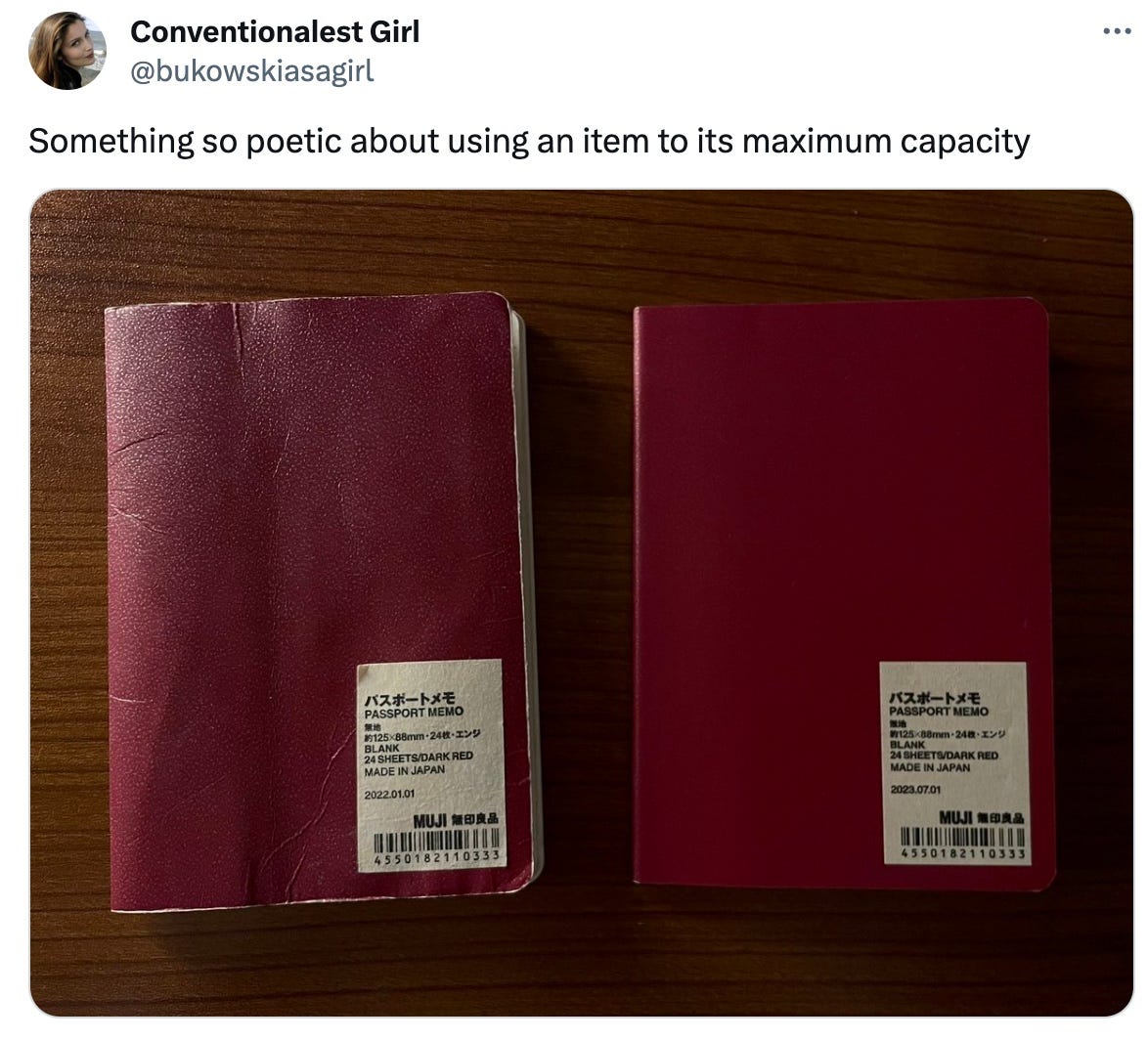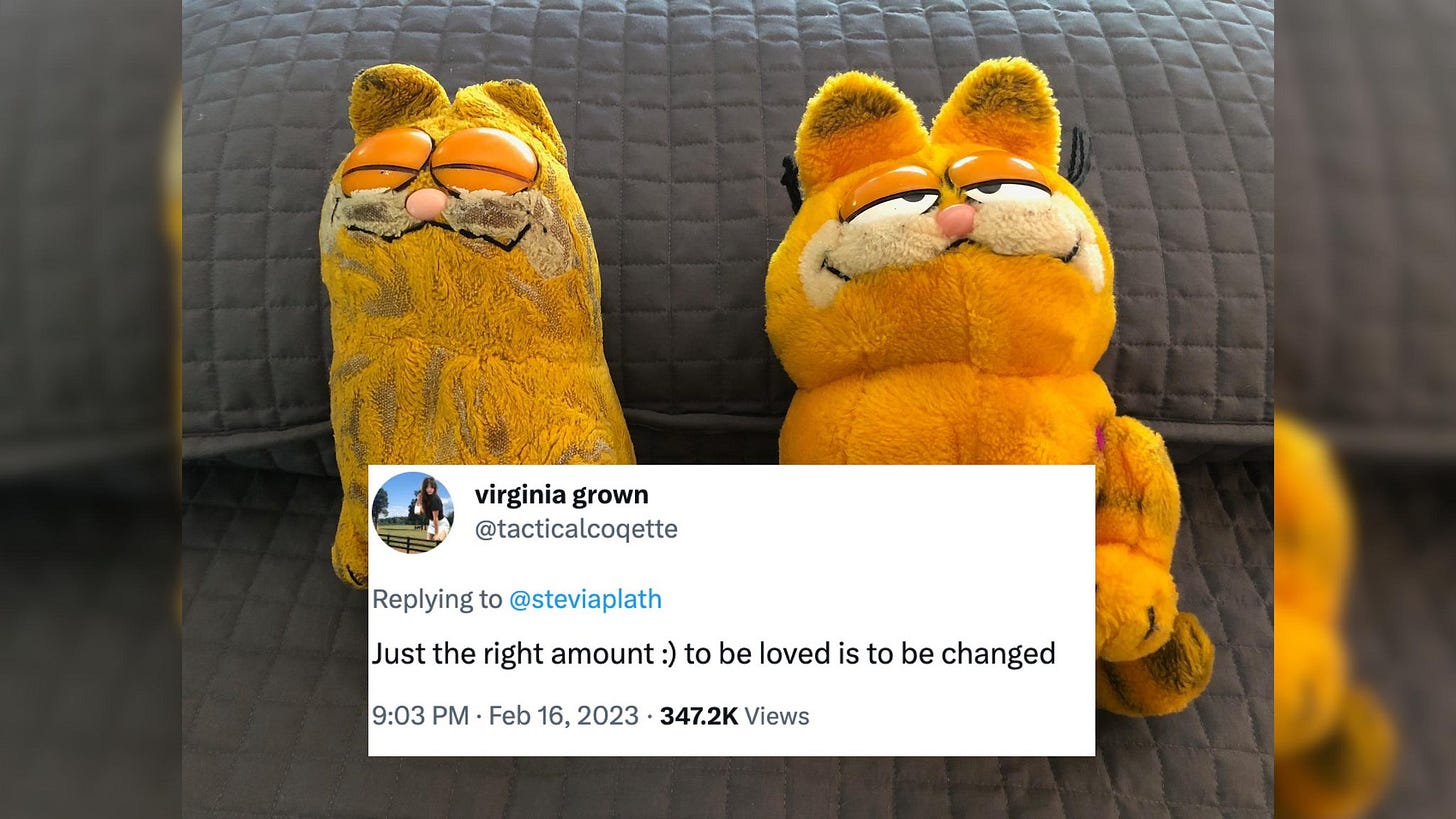The Discourse Age
a study on bait and our compulsion to respond
There's only two types of people in the world
The ones that entertain, and the ones that observe“Circus” by Britney Spears (2008)
I imagine that these prescient lines must play in the mind of everyone who is about to Tweet something incendiary, innocently bopping along to that sick beat as they hold they knowledge that they’re about to blow up the internet for the entire day.
Have you ever wanted to gain traction online? You can, easily, by throwing some “discourse bait” into the water. We all know it when we see it — perhaps we have even been kept awake at night by a Bad Tweet, the fright that one human mind could be so exasperatingly stupid, fighting the urge to find the poster ourselves and let them know. People who are professionals at Posting Badly are often known as “grifters” or “trolls,” and their lifespan on the internet will be as long as the ends of the Earth. We fucking love seeing something stupid and getting so blinded with rage over it that our stomach starts hurting a little bit.
However, even given the fact that the most controversial figures will appear outsizedly popular in the internet sphere, most “discourse bait” happens in a one-off Tweet. It’s not always purposeful — usually when it is, most can spot the troll behavior and react accordingly — but for anyone who’s even the least bit digitally literate, you know where the hot buttons are and how to press them.
Take this recent Tweet, which I found from a mutual (Ashley Reese AKA offbeatorbit) quoting with, simply, “GODSPEED, BABE 🫡 ”
Ashley’s response is a predictive one — at the time she posted it, the original user had not yet encountered the barrage of animated responses that was about to descend. Ashley was simply (correctly) calling the Tweet for what it was: perfectly crafted discourse bait.
Let’s examine this beautiful, beautiful Tweet that was destined for stardom:
Right off the top, brecht apologist gets specific. This Tweet is for parents of teenagers who are picky eaters. Oh, and what’s that? If that’s the case, then you have failed as a parent, implying also that those with limited palates into adulthood have failed as people. Plus, the poster has visible abs in her profile photo, calling into question her expertise about both parenting and chicken nuggets. It’s really just a goldmine.
For starters, poking the mom-shaming bear is a ticket to the top. Randos on Twitter love to dunk on hypothetical mothers as much as Twitter moms feel compelled to compulsively defend their parenting choices to every rando. That gets the ball rolling.
The other sparkplug attribute of this Tweet is that it can, if read in a certain way, be applied judgmentally to neurodivergent people who have sensory issues or a necessary, limited diet. The intent is not important; it’s all about interpretation here, as once a Tweet gets quoted or replied to, it’s no longer the post of one person, but two. It’s collaborative. Aw. They’re working together. This is how the Tweet snowballs.
The best bait has a combination of a hot take with an extreme conclusion and the ambiguous possibility of judgement towards a marginalized group. Even without the poster being a professional troll, and perhaps without even really trying to “bait,” these Tweets rise to the top of my feed.
To be a troll requires a specific type of dedication and intent. Those who have crafted their online persona in a way that inspires collective rage with every post are pretty easy to spot. These people are usually ignored by those with enough courage to protect their sanity. After all, we would all like to consider ourselves reasonable people, and with an endless stream of incendiary content on the internet I think that most of us do our best to steer clear of ill-intentioned figures who have nothing better to do than make everyone else upset.
The discourse bait tweets are more interesting to me, given that they usually gain even more traction than the straight-up troll posts. Discourse is, by definition, a conversation, and people are usually much more willing to have a conversation regarding an ambiguously prodding post than a straight-up hateful or vile one.
My other point of interest is that discourse bait is accessible to everyone — one need not be a die-hard troll to post bait, and many wander into the trap accidentally. I’ve certainly had my share of Tweets that I deleted hours after posting, unwilling to be at the center of a conversation I never meant to reach outside my immediate following. How do we keep falling into the traps? Why are we so enthralled by our Twitter main characters? What value do we think we are contributing?
What inspired this essay is a recent discourse saga that got me thinking on a level deeper than trolls and simple poke-the-bear posting. It doesn’t have the hallmarks of the classic bait, even though the way it unfolded was pretty standard. In a way, it’s my own kind of perfect bait — involving conversations about womanhood, intellectualism and commodification. I’m certainly not immune to my own traps.
The following tweet was posted on January 6th, unleashing what is certainly the most notable series of events to ever happen on that date.
This post immediately caught my attention. Let me flag for you what I’m seeing here:
The username @bukowskiasagirl is already fertile soil for previous discourse trends; is she claiming the moniker of “girl” as a representation of confused womanhood and a last grasp at nostalgia? Is she “spending more time bragging about reading [Bukowski] than actually reading”? Is she needlessly commodifying her interests to appeal to an increasingly image-led world more concerned with representation than substance? Wait, now I’m getting ahead of myself. That’s later.
The second thing that tipped me off about this post being a potential trigger for the online masses is the simple phrase: “something so poetic about…” The internet often interprets declarations of existential or artistic meaning through a lense of “true” or “untrue,” usually unconcerned with the idea of a person simply finding something valuable to themselves and instead interpreting the affirmation as an argument and rushing to test its strength. Take this post, for example:
After the initial post, some quote-Tweets started trickling in, most attaching their own beloved works of visual art. Top responses included some universally acclaimed works — “Untitled” (Portrait of Ross in L.A.) by Felix Gonzalez-Torres, Blue Monday by Annie Lee, "Can't Help Myself" by Sun Yuan and Peng Yu, among others. A few people attached screenshots of poems or internet cartoons. The fish started wriggling at the end of the bobber.
Have I established my premise well? Do you know what’s coming? The quote Tweets descended into discourse: Tumblr text posts aren’t “visual art.” Who cares, let people enjoy things! Surely, we should have some standard of delineation between serious and amateur art. Actually, that’s gatekeeping! Should we AI generate a finished Keith Haring piece? No, you deserve to rot in hell! Then people started posting anime titties, which is, in all cases, the death knell of serious discussion.
So, we return to bukowskiasagirl, proclaiming her finished journal and its new companion as “so poetic” with fresh, internet-poisoned eyes, seeing this as a clear invitation for debate.
At this point in my investigation, a clear analog for this post occurred to me. Blessed as I am by my constant and unwavering digital footprint, I was able to locate, in the file folders of my brain that have kept absolutely no calculus but plenty of Tweets, a twin to our journal post:
The original post features two Garfield stuffed animals, one clearly worn and one new. A reply posits a brief assertion: to be loved is to be changed. The Garfield post hosts its own staggering amount of quote-Tweets, and yet, it did not become “discourse.” Most people who added to the thread did so by attaching photos of their own childhood stuffed animals, their stray cats that were once scared and skinny now basking in a household of unlimited love, and sharing appreciation for the small quote that seemed to encapsulate so much. Where most internet spaces have a negative relationship between pleasant discussion and the amount of people involved, this post appears to be one of the only successful group projects we’ve ever completed. Great stuff, guys.
But, as you can imagine, the internet simply could not rest at the sight of a woman declaring something to be valuable (lest we forget enjoying-coffee-with-my-husband-in-the-garden-gate). It was, obviously, a provocation. The response to bukowskiasagirl’s “poetic” lay of journals was not the collaborative consensus we saw above. Otherwise I wouldn’t be talking about it.
This is a quote-tweet from the journaler’s post (whose account is now locked, likely in response to the unraveling that was to follow). Here, we see a common contribution to internet discourse — the dunk.
There are a few primary ways to get traction on your discourse response: emphatic agreement or disagreement, implications that the original poster is ableist/sexist/racist, and, of course, the dunk. When done well, dunking on another person who has already subjected themselves to main-characterdom can seem to finish off the discourse train in one, satisfying swoop. Usually, it’s done by some combination of amateur psychoanalysis and clever syntax. It’s something that distances you enough from the real meat of the argument, lest you commit the original sin of caring too much, and gives dissenters of the original post comfort that “liking” the response will turn it into the dominant narrative.
But, in this case, there’s layers to this shit. Twitter user boywaif’s dunk was not the final shot. Introducing, the meta-dunk:
With a side of the ever-cathartic, hypocrisy-caught-in-4K meta-dunk:
Are you tired yet? I’m tired. But I’ll keep going.
First, though, we have to go back.
What is “discourse,” anyway? The word has grown in popularity on the internet in recent years to describe the type of phenomena I’ve outlined for you — namely, large-scale (often hot-button), publicly-sourced conversations with differing stakes, opinions, and applications. Why use the word “discourse” over similar descriptors like “debate,” “discussion,” even the simple “conversation?”
It’s not that the term is wholly inaccurate, but it does imply a certain sense of formality; the early etymology and use of the term that I could find usually denotes this. I first started regularly hearing the word in college, when professors would discuss differing opinions of philosophers, theorists, or political scientists. This type of discourse took place over multiple years, spanning entire hundred-page works and intense, dedicated responses. Early uses of “discourse” reference the act as a process rather than an event. A true back-and-forth, i.e. something that could not be brought to a grinding halt by one meta-meta-dunk.
The thing about Twitter “discourse” is that it is not conversational in the least. No one is listening to each other, and it all seems to be in a constant, rabid search for an ideological end. A nail with which to seal the coffin of unrest. Who can call someone else an ableist and end the debate, having now determined the bad guy? Who can find the deep-cut tweets revealing this essayists astounding hypocrisy, therefore making their initial point null? Who can free us from this cyclical, open-source, free-for-all gladiator fight? Help!
Each meta-dunk zooms out further — actually it’s you who is commodifying your intellect, and me who has the answers — as if we could reach some larger truth by dragging the net as wide as possible, dunking on every possible perspective until I guess God presses the intercom button and says, “I have a take.”
And, lest I become the victim of my own hypocrisy-caught-in-4k dunk (still possible), am I not making an example of myself here, as if a long-form piece could free me from my ultimate identity as Twitter User, as if spending an afternoon contemplating all this means that I’m somehow above it, commenting from afar rather than the middle of the ring? Am I not performing grandiloquence and writing The Essay That Is To Be Written?! The call is coming from inside the house, diva! AHHHhhHHH!H!!!!!
I do not wish to disavow “discourse” in its truest sense (whatever that means now), or to talk down on people who participate in it (me being one of those people). I just think that any phenomena proven to be so compelling, so metaphysically irresistible that it regularly takes over entire social media platforms and the brainspaces of even our most mindfully online peers (if such people exist) is worth investigating.
Bait is a grab at the lowest hanging fruit, sure — people will obviously and reasonably be upset at implications of bad parenting, racism, ableism, sexism, etc… but the cycle is the hypnotic thing. It’s what keeps us refreshing the quote-tweets and compelling us to draft our own responses. We feel powerless so we pile on, we contribute, we shout into the algorithm with the promise that maybe it will catch. The existential human urge to be known and heard. Or whatever.
The hopelessness is part of what brings us back, I think. With Twitter discourse, we don’t get anywhere. We spend hours or even days hunting for winners and losers, pointing fingers and trying to put everything we mean in 35 words or less, only to be misrepresented, to misrepresent others, and to get angry at characters that we have made up in our mind.
Part of the reason why I am mid-migration away from social media and towards Substack is because I think it offers a meaningful vehicle for thoughtful discussion. It’s slower, it’s longer, and it’s less prone to the spiraling out than other platforms. The other platforms want posts to get away from themselves — to become endless, unproductive “discourse.”
Despite my best efforts, I’m still hooked by Twitter and by the discourse bait that populates my feed. I don’t know if I’ll ever leave completely (hello, what would I write my essays about???), but I do want to try my best to stop falling into the traps. I’m looking forward to reading some thoughtful responses to this post. Or maybe someone will screenshot a few sentences from it, post it on Twitter, and this will all have been a long-form prophecy for my eventual main-character moment.
Anyway. Bring back the fucking salon!











wonderful! i love how much your voice comes through in your work eliza! also, the point about searching for the person who can finally end the debate is so well articulated. i’ve noticed myself fall into so many of these patterns. here’s hoping 2024 is the year we can try to kill the reactionary in our heads!
when actually writing the essay to be written results in a satisfying fleshing out of ur thoughts and improved understanding
yipee :-)